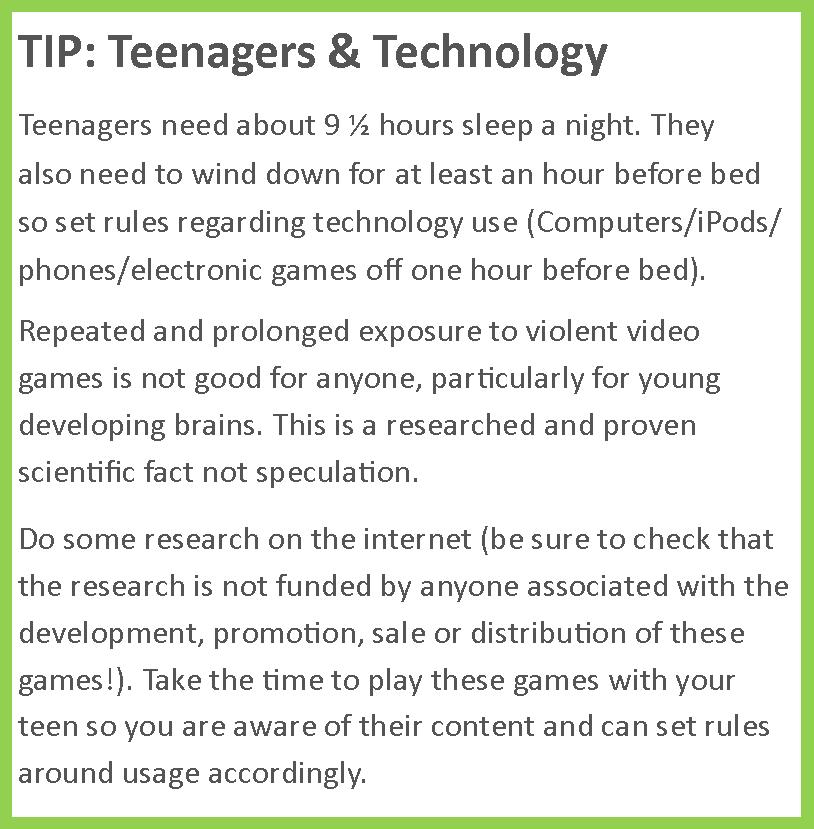Cyber Bullying is basically bullying on steroids.
It is repeated, targeted teasing, rumour spreading, distribution of photos and information (after being asked not to), and defamation; that has the intention and/or result of causing someone emotional distress; via modern technology (eg computers, laptops, mobile phones) and primarily through social media.
Why is Cyber Bullying so bad?
Why is it worse than bullying?
One word – Saturation.
- It can happen anytime 24/7.
- It can happen anywhere so it invades school and home. Nowhere appears safe for the victim from the reaches of cyber bullying.
- It can involve everyone. The information can reach a wide audience on social media.
What if my Child is being Cyber Bullied?
What can parents do if it is happening to their teenager or child?
There are a multitude of websites that provide an abundance of resources on what parents can do, such as managing internet safety settings, reporting to schools or police, and legal rights. If you search on the internet for “Cyber Bullying” have a look at the Australian sites.
It can be difficult to know if your teenager/child is affected as often they keep quiet out of embarrassment and shame. This is a definite concern, if a child/teenager does not tell someone that can help, that they are being cyber bullied.
Stopping Cyber Bullying
The key to stopping Cyber Bullying is to prepare for it before it even begins:
1. Keep the lines of communication open with your tween or teen, and ensure they are aware that you are there to support them. This means having the sort of relationship with your teenager, where they know they can come to you with any problem, and you will help them through it.
Unfortunately some parents try to address the issue of cyber bullying by taking away mobile phones and internet access from their teenagers, thinking this will fix the problem. If only it was that simple. Many teens would rather put up with the bullying than lose their lifelines.
 2. How your teenager responds to potential bully situations has an impact on how the situation progresses. Poor impulse control can escalate the situation, for example, if a teenager takes revenge. Things such as threats of physical violence or forwarding on ‘private’ photos may actually lead to your teen risking criminal charges.
2. How your teenager responds to potential bully situations has an impact on how the situation progresses. Poor impulse control can escalate the situation, for example, if a teenager takes revenge. Things such as threats of physical violence or forwarding on ‘private’ photos may actually lead to your teen risking criminal charges.
Poor impulse control is worsened by lack of sleep. The ability to STOP – THINK – ACT is diminished if the brain has not had sufficient sleep.
Impulse control is often a struggle for teenagers but there are strategies for increasing skills in this area, and this is something a psychologist can help with.
3. Reduce vulnerability.
Resilience is a protective factor. Increasing resilience in teens and pre-teens can help shield them from being emotionally vulnerable in negative situations such as bullying. They have a greater capacity to bounce back.
How do I pick up the pieces?
So you have talked to the school and the situation has been addressed. The cyber bullying has stopped. Now what?
Bullying of any kind can be a traumatic experience. Talk to your teenager and ask how things are going. Watch for signs that your teenager is not ‘getting over it’. Signs to look for include, but are not limited to:
- irritability,
- withdrawal from recently enjoyed activities,
- increased negativity,
- school refusal,
- sleep disruption,
- dramatic changes in appetite,
- poor school performance and
- reduced contact with friends.
If you are noticing some of these signs in your teenager, it is a good idea to seek professional help. Please feel free to make an appointment for you and your child/teenager to come and have a chat with me, to determine the best course of action for you and your child.
 Author: Nicole Wimmer, B Sc (Psych), MA (Psych), PG Cert Mgmt, Grad Dip Safety Science, MAPS.
Author: Nicole Wimmer, B Sc (Psych), MA (Psych), PG Cert Mgmt, Grad Dip Safety Science, MAPS.
Nicole Wimmer is a Brisbane Psychologist, who believes resilience is crucial to help us face life’s inevitable challenges. Issues around bullying (including cyber bullying) are becoming increasingly prevalent and potentially detrimental to healthy adolescent emotional development. Early intervention and management can help prevent a lifetime of suffering.